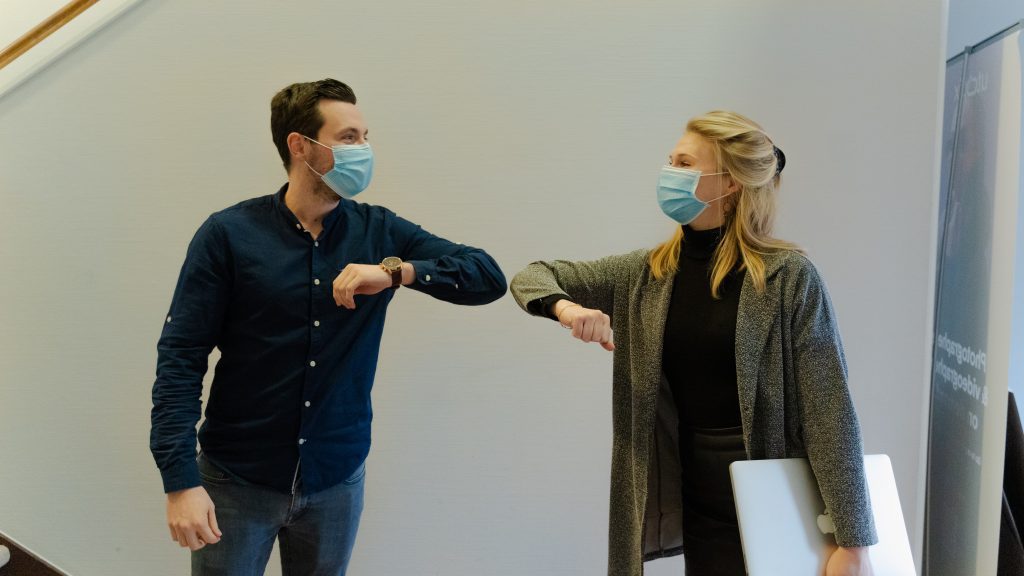You’re not about to put a smiley face sticker or stamp a star on an employee’s report. At least, we hope not.
Still, we understand that it can be hard to find the right way to show employees your appreciation for a job well done. While it’s usually worth the effort, leveraging praise in employee engagement has some pitfalls that you should be wary of. This article explores the delicate balancing act of offering praise at work.
The basic belief in business is that letting people know that their work is appreciated motivates them. When managers make a habit of acknowledging individual effort — even a simple “thank you” — it helps staff feel valued. This improves employee morale, leads to greater engagement, and lowers risk of turnover.
Drawing on Maslow, in The 7 Habits of Highly Effective People Steven Covey explains, “Next to physical survival, the greatest need of a human being is psychological survival, to be understood, to be affirmed, to be validated, to be appreciated.”

Possible Praise Pitfalls
However, praise can also perpetuate scarcity thinking. As Leadership That Works faculty member Rebecca Aced-Molina writes, “This is because praise, in its essence, is a comparison.” Essentially, saying, “You’re amazing,” suggests someone else is not. Praise means your star is rising, while someone else is being left behind.
Praise also fosters dependency. Staffers may come to need constant “good job” feedback. Without it, they will question their skills and doubt their efforts. The absence of praise injures their self-esteem. When we become accustomed to praise, and then it is taken away, we’re likely to start criticizing ourselves.
Praising too much can be a problem as well. If you overdo it by praising every little thing, the acknowledgements will blur together. The accolades lose value; if the praise feels inauthentic, it can actually demotivate employees.
Effectively Use Praise in Employee Engagement
Acknowledging employee effort remains a powerful tool for managers, though. It’s just a matter of effectively using praise in employee engagement. Try these strategies.
Be specific.
Saying “good job” isn’t enough. The more specific you are in offering praise, the greater its impact. Providing praise that states: “You always hit deadlines;” “Your research is detailed;” or “I never have to correct mistakes on your reports,” lets the individual know exactly what they are doing right. This helps them to replicate that strong effort.
Attach appreciation to goals.
Linking the praise you are sharing with specific organizational objectives helps the employee to see how vital they are to business success. As HRMorning observed, “The best way for managers to recognize their employees is to let them know just how their hard work benefits the company’s bottom line.”
Focus on effort, not just accomplishment.
Don’t just praise end results. Look for specific areas where you can recognize employee effort. Encouraging hard work and innovative thinking helps foster a work environment in which people are willing to take risks and try new things.
Praise focused on reaching the finish line also overlooks opportunities for growth, per Aced-Molina. Acknowledging that someone has stepped out of their comfort zone or that they worked hard to facilitate diverse opinions being heard leaves room for the individual to ask questions and set further goals.
Eliminate the but.
Maybe you’ve heard of the constructive criticism sandwich. You say something positive, offer a criticism, then close with another positive. Keep this approach separate from your intention of acknowledging work successes. When it comes to praise, though, be direct. Don’t “dilute your praise with a ‘but.’ Deliver your praise straight for maximum effect.”
Make it personal.
Taking a moment to make a call to verbally express appreciation has a positive impact. Speaking face-to-face will have even more weight. But, taking the time to write a handwritten note helps demonstrate how important you found the action taken or work done. Your people will appreciate seeing you make the added effort. Plus, it adds a personal touch to the communication.
Be timely.
Waiting too long to acknowledge something well done diminishes its impact. The person may well have moved on. Late praise feels like an afterthought. That doesn’t make them feel valued and seen. Don’t put off until tomorrow something that will have much more power done today!
Learn how employees hear praise.
Praising the person in front of the entire team could make one employee glow while another one would rather hide. Some people will prefer verbal versus written praise. It’s the manager’s job to pay attention to what works for different individuals. Recognizing and respecting this can help each individual feel even more understood and appreciated. Being attuned to your direct reports like this is a big part of emotionally intelligent leadership, which can be learned!

Conclusion
“Great job! We love how you read all the way to the end of this article.”
Ultimately, praise needs to feel genuine. Managers who pay attention to potential pitfalls and take the time to effectively acknowledge their people will see more power come from praise. We’ve said before, “great businesses always find, nurture, and retain the best talent.” They consciously praise that talent, too!






